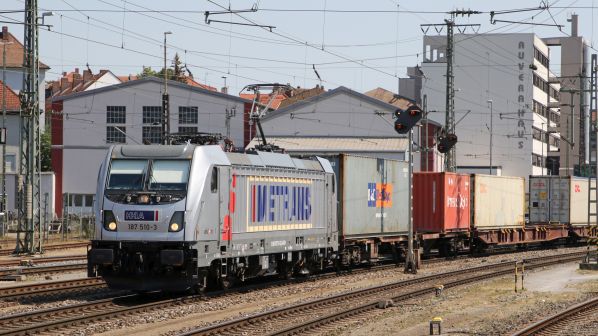THE German federal government has awarded Bonn-based IT company RailWatch €3.5m of funding from its ‘Future Rail freight’ fund for the development of a measurement system, which can create a digital twin of a passing freight wagon.
The digital twin can be used to automatically check many features of a rail vehicle, and should be able to reduce the time required to prepare trains in terminals and assist in providing predictive maintenance information to rolling stock operators and owners.
RailWatch was founded in 2015 with the aim of making rail freight transport cheaper, more efficient, and safer through the use of data. The company has already installed several Pulsar lineside cabinet measuring stations at key points on the German rail network, each of which requires around 4m2 of space. Each Pulsar unit has highly sensitive sensors and cameras that scan freight wagons, passenger coaches, multiple units and locomotives as they pass.
The data from the sensors is then processed through an artificial intelligence-based (AI) system to record and document the technical condition of the vehicles, which can then be presented to customers via a web portal. The system is able to detect wear and tear issues such as unwanted abrasions, including wheel flat spots, as well as locked brakes, cracked springs, and excess loading.
The new government-funded project will be undertaken in association with intermodal rail freight company Metrans, which is owned by the Hamburg Harbour Authority (HHLA). As part of the project, new AI-based software is being developed to automatically record and analyse every relevant data point, and create a digital twin of each individual wagon that passes the measurement point.
The grant will allow RailWatch to increase its staff to 60 employees including IT, sensor and railway specialists. The company will develop enhanced measurement systems to improve the existing Pulsar units, which will include cameras, lights, and laser, thermal, and acoustic sensors. These will record safety and regulatory-relevant data such as wheel profiles, wheel flats and wagon heat while also taking under-floor and side views and checking loading gauge clearance.
The system will take tens of thousands of photos and record a huge amount of data for each train passing the measurement station, with this shared over a 5G telecoms system to allow the rapid data transfer of large quantities of information. This data will then be processed in the cloud on servers based in the EU operating under Germany’s strict data security rules.
The field trials, due to be undertaken with Metrans, will assess the data collected against the technical rules and regulations. The trials will provide proof of concept for the integration of automatic wagon technical inspections into the operator’s safety management system, enabling much wider future use.

